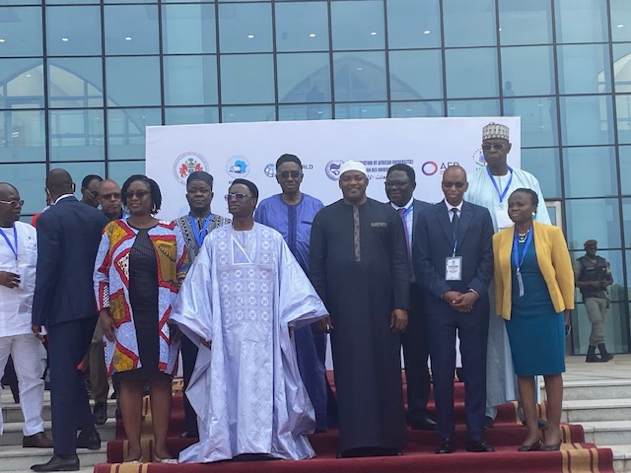
However, he said as the African continent continues to redress its capacity gaps, particularly in the area of human resource development, nothing is more relevant than working towards building the capacity of African universities.
Additionally, he added that specific to the ACE Project, The Gambia is working towards establishing a full-fledged Centre of Excellence in Science, Technology, and Engineering for Entrepreneurship.
"The purpose for this focus is obvious; we need adequate human capital that is equipped with entrepreneurial mindsets to match our development strides and aspirations," he noted.
According to him, The Gambia’s education reform endeavours will put due emphasis on hands-on education and training. "To push this agenda forward, my government, through the Ministry of Higher Education, Research, Science and Technology, is setting up regional skills centres with the required accompanying curriculum for technical education and training."
Hon. Prof. Pierre Gomez, the minister of Higher Education, Research, Science and Technology (MoHERST), said the event was symbolic as it occurred when the country's higher education reforms, specifically the STEE establishment at USET, achieved the desired objectives.
He added that The Gambia, since it entered into the Africa Centres of Excellence, has benefited tremendously, more so in the human capital formation of crucial development institutions in The Gambia.
According to the MoHERST minister, the government of The Gambia expresses gratitude to the World Bank, the Association of African Universities, and other partners for their continued support in our higher education sector development.
Moreover, he pointed out that the divergent experts from different academia and industry sectors in the meeting symbolise African institutions’ readiness to address challenges through education and research.
"Together as Africans, through such a Project, we are stronger. We can consolidate efforts to develop academic and research outputs that can help address youth employability, food security and endemic health concerns that have been stifling our respective economies for so long," he added.
Olusola Bandele Oyewole, secretary general of the Association of African Universities (AAU), said the Africa’s Union Continental Education Strategy for Africa clearly named out the crucial role of innovation and technology with the goal of reorienting Africa’s education and training systems to meet the knowledge, competences, skills, innovations and creativity required to nurture African core values and promote sustainable development at national, sub-regional and continental scale.
He added that the higher education sector plays a critical role in enhancing innovation and entrepreneurship within the region. “We are charged with the responsibility to cultivate creativity and harness innovativeness through quality training and excellent applied research.”
Feyi Boroffice, resident representative of the World Bank in the Gambia, said the ACE Projects are a great model for leveraging regional approaches for promoting quality, innovative, sustainable and collaborative higher education sectors in Africa complementing national efforts.
She added that the project has successfully served as a regional platform to form multi disciplinary networks that put concern on the pressing development challenges through highly relevant research in sectors such as health, climate change, food security, ICT, renewable energy, water and sustainable mining.
Read Other Articles In Headlines
Senegal confirms 78 new covid-19 cases
Jul 7, 2020, 11:35 AM




